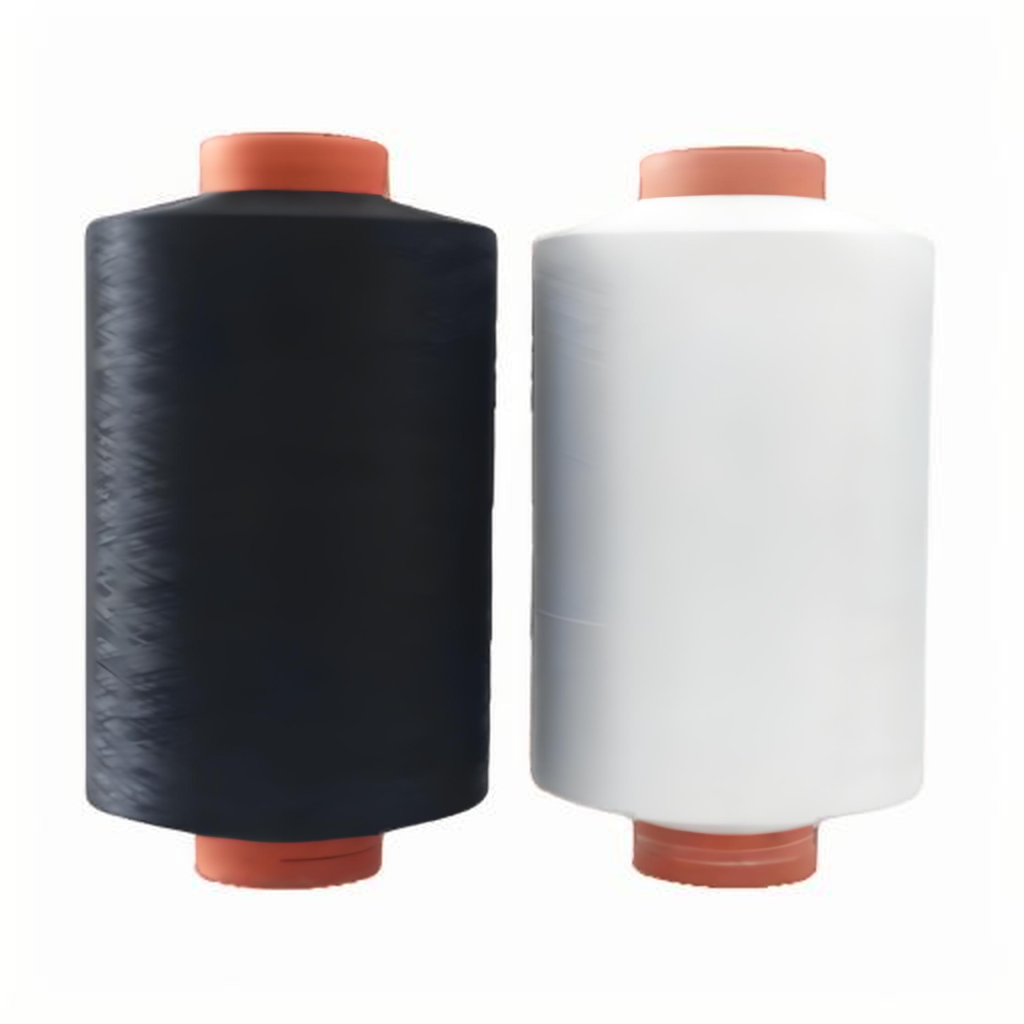Explore how evolving global policies shape the future of Polyester FDY. Discover sustainable trends, compliance insights, and innovations in eco-friendly yarn.
A New Era for Sustainable Textiles
In recent years, environmental sustainability has become an essential focus in global manufacturing, and the textile industry is no exception. As both consumer demand and policy evolve toward greener practices, FDY (Fully Drawn Yarn) is undergoing significant transformation. This widely used material—valued for its strength, versatility, and cost-effectiveness—now faces new expectations around recyclability, energy efficiency, and ecological impact.
In response to these developments, governments at various levels have introduced policies that directly or indirectly affect the production, sourcing, and usage of FDY. Meanwhile, companies like Textile Supply Chain (https://www.textilessupplychain.com/) are actively innovating to provide sustainable yarn solutions that meet regulatory demands and market preferences.
Understanding Polyester FDY: Properties and Industrial Significance
Polyester FDY is a synthetic filament yarn made by spinning and drawing processes that produce a high degree of crystallinity and tensile strength. It is widely applied in:
-
Apparel (sportswear, innerwear, outerwear)
-
Home textiles (curtains, bedsheets)
-
Industrial fabrics (automotive interiors, geotextiles)
Its excellent durability, dyeability, and dimensional stability make it a go-to choice in both woven and knitted textile applications.
With evolving policy landscapes, however, FDY producers are now challenged to align performance with sustainability—without compromising efficiency or affordability.

Global best-selling Polyester FDY
Policy Shifts: Global and Regional Influence on Polyester FDY
While some nations are recalibrating their approach to plastic and synthetic product regulation, several states and local governments—especially in the U.S. and Europe—are adopting ambitious waste reduction frameworks. Though most current policies target plastic packaging, these legislative movements are increasingly relevant to synthetic fibers like FDY due to their composition and environmental footprint.
Extended Producer Responsibility (EPR) laws, like New York’s Packaging Reduction Act (S1464) or Washington’s SB 5284, emphasize a shift in accountability from governments to manufacturers. This model can be translated into textile policy, especially as Polyester FDY production intersects with the same themes of recyclability and lifecycle responsibility.
For example, initiatives focused on recycled PET (rPET)—a primary raw material for recycled Polyester FDY—are gaining attention under EPR guidelines. Regulations requiring minimum recycled content in products encourage more textile mills to integrate rPET into their supply chains.
Innovations in Sustainable Polyester FDY Manufacturing
Textile producers are proactively exploring solutions to improve the sustainability of FDY, including:
-
Using Recycled Raw Materials: Recycled PET bottles are converted into FDY yarns through melt spinning, reducing landfill waste and fossil resource use.
-
Low-Impact Dyeing: Advancements in dope-dyed Polyester FDY minimize water and energy consumption.
-
Closed-Loop Systems: Integrating circular economy principles, manufacturers are designing yarns and garments that can be recycled at end-of-life, facilitating long-term environmental performance.
At Textile Supply Chain, we provide eco-friendly FDY solutions designed to support these forward-looking practices. Our yarns meet modern demands for performance, recyclability, and visual aesthetics.
Consumer and Market Shifts: Driving Sustainable Polyester FDY Demand
Across the textile supply chain, from designers to retailers, demand for sustainable fibers is growing. Brands are prioritizing traceable sourcing and transparent supply chains, especially in fashion and interior sectors.
Retailers now expect suppliers to disclose:
-
Carbon footprint of their Polyester FDY
-
Percentage of recycled content
-
Chemical treatment safety
-
Compliance with certifications such as GRS or OEKO-TEX
These expectations are not merely symbolic—they influence purchasing decisions and shape long-term partnerships. Polyester FDY manufacturers that meet these criteria enjoy a competitive advantage.

Durable Polyester FDY
Challenges: Policy Ambiguity and Technical Complexity
Despite these opportunities, challenges remain for FDY producers navigating multiple jurisdictions. Regulatory inconsistency between regions—such as federal vs. state policies—can complicate planning and compliance.
Additional industry challenges include:
-
Higher initial costs for sustainable manufacturing equipment
-
Complex certification processes
-
Limited consumer understanding of textile recycling and eco-labels
To address these, industry players must advocate for unified standards and invest in educational campaigns that help consumers understand the value of sustainable Polyester FDY.
Textile Supply Chain: Your Partner in Polyester FDY Innovation
As a leading provider in the global textile industry, Textile Supply Chain offers high-quality FDY products that align with both industry standards and evolving regulations. Our offerings include:
-
Virgin and recycled Polyester FDY with a wide range of deniers and luster options
-
Custom coloring via eco-friendly dope-dyeing methods
-
Compliance with REACH, GRS, and other international certifications
-
Reliable delivery and global distribution
We continue to invest in sustainable practices and work closely with clients to create tailored solutions that enhance product performance while minimizing environmental impact.
Environmental Impact of Polyester FDY: Moving Toward Responsible Use
The synthetic nature of FDY raises valid environmental concerns, especially around microfiber shedding, recyclability, and post-consumer waste. However, innovations are helping mitigate these effects:
-
Anti-shedding yarn designs to reduce microfiber pollution
-
Integration with biodegradable coatings or additives
-
End-of-life recovery systems for closed-loop recycling
Such advancements reinforce the importance of treating Polyester FDY not as a single-use material but as part of a circular, sustainable textile system.
Global Lessons: Aligning Polyester FDY with International Best Practices
From the EU’s Single-Use Plastics Directive to Japan’s circular economy goals, global policy efforts provide valuable models for how the U.S. and other countries can evolve their textile strategies.
For Polyester FDY, this means:
-
Adopting lifecycle analysis as a standard evaluation tool
-
Encouraging multi-stakeholder collaboration on yarn recycling infrastructure
-
Promoting biodegradable or low-impact FDY variants
At Textile Supply Chain, we study and integrate global trends to ensure our Polyester FDY products meet both current needs and future expectations.
Education and Collaboration: Key to Scaling Sustainable FDY Solutions
Consumer education is essential. Many end users are unaware of what Polyester FDY is or how it fits into sustainability efforts. Clear labeling, storytelling, and transparency can empower better decision-making.
In the B2B context, supplier and buyer collaboration is vital. Joint innovation projects, shared R&D investments, and open feedback loops help align sustainability goals across the textile chain.

Polyester FDY Suppliers
Building a Greener Future with Responsible Polyester FDY
As sustainability becomes a defining force in global textile markets, FDY is at a crucial inflection point. Regulations are pushing manufacturers to think beyond price and volume—to prioritize environmental performance, social impact, and long-term resource efficiency.
While regulatory pathways may vary by country or region, the direction is clear: future-ready FDY must be cleaner, more transparent, and better aligned with circular economy principles.
At Textile Supply Chain, we are committed to leading this transition. Our portfolio of Polyester FDY products reflects a dedication to quality, sustainability, and compliance. We view every shift in policy not as an obstacle, but as an opportunity to innovate.
By choosing responsible materials and embracing evolving guidelines, businesses can unlock new markets, strengthen brand reputation, and contribute meaningfully to a more sustainable world.
Learn more about our Polyester FDY offerings at:www.textilessupplychain.com
Previous News
Polyester POY and Policy Shifts: Navigating Sus...Next News
A Low-Carbon Shift: How Global Policy Is Redefi...
By Yarn
Feature Product
-
 Fio de poliéster DTY 100D/144F
Fio de poliéster DTY 100D/144FDTY 100D/144F Polyester Yarn: The Ultimate Guid...
-
 Fio de poliéster DTY 100D/96F
Fio de poliéster DTY 100D/96FDTY 100D/96F Polyester Yarn: The Soft, Stable S...
-
 DTY 75D/144F Fio de poliéster SIM
DTY 75D/144F Fio de poliéster SIMDTY 75D/144F SIM Polyester Yarn: A Top Choice f...